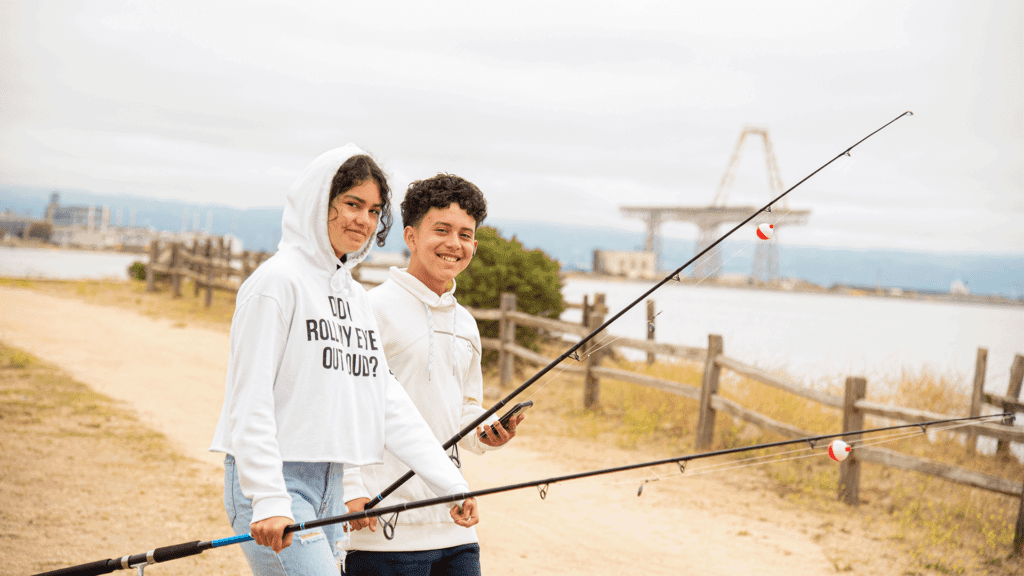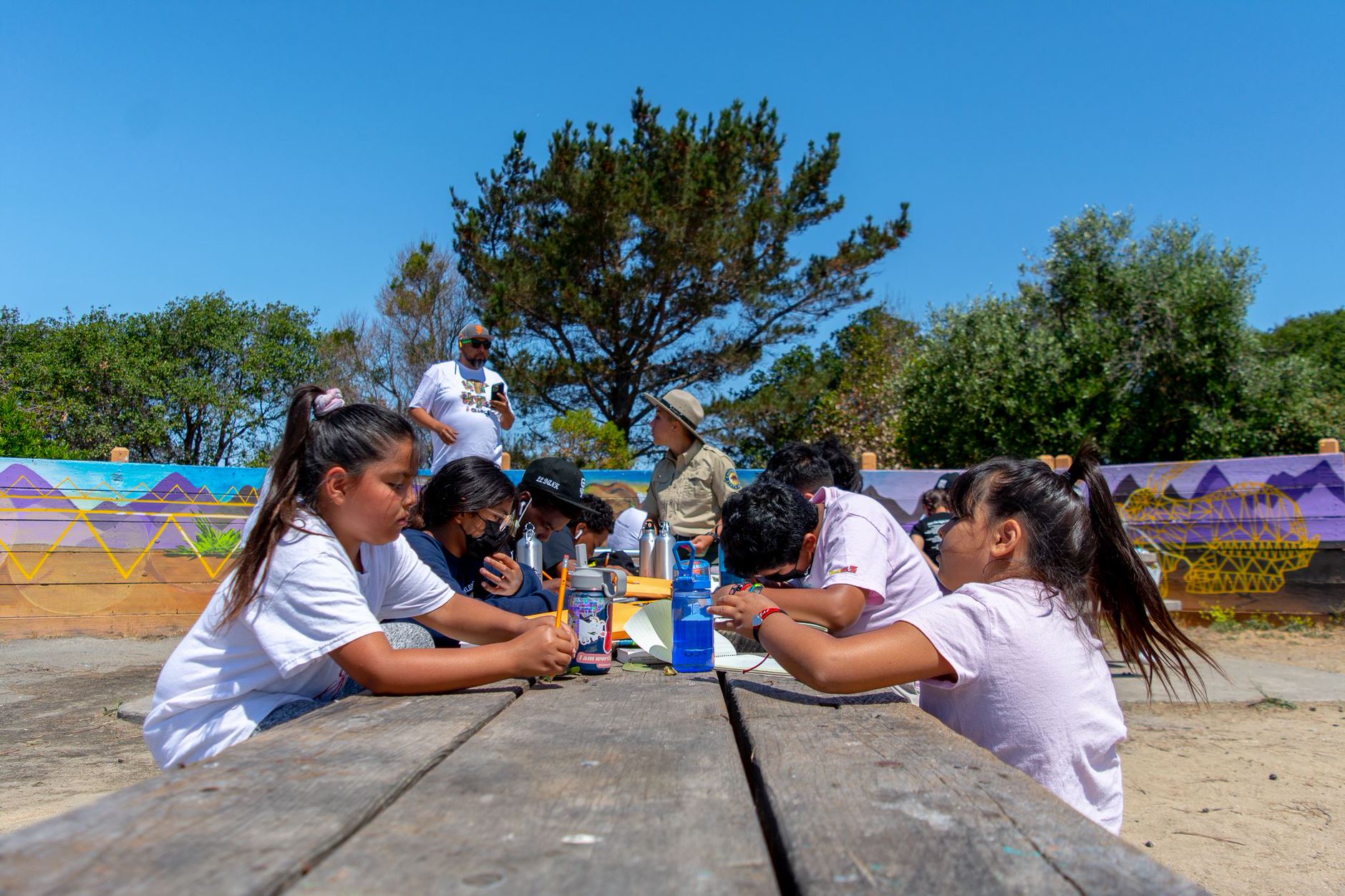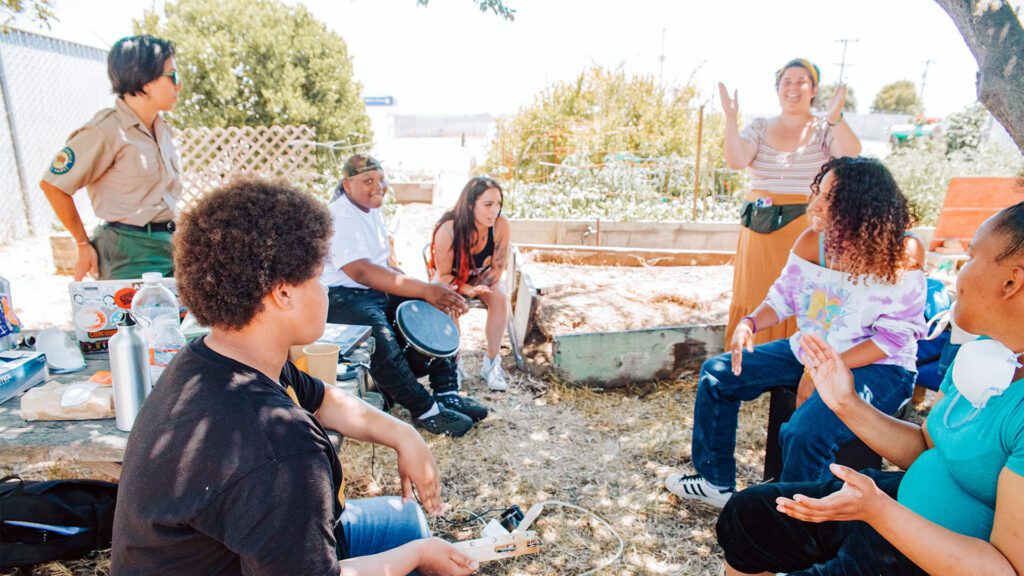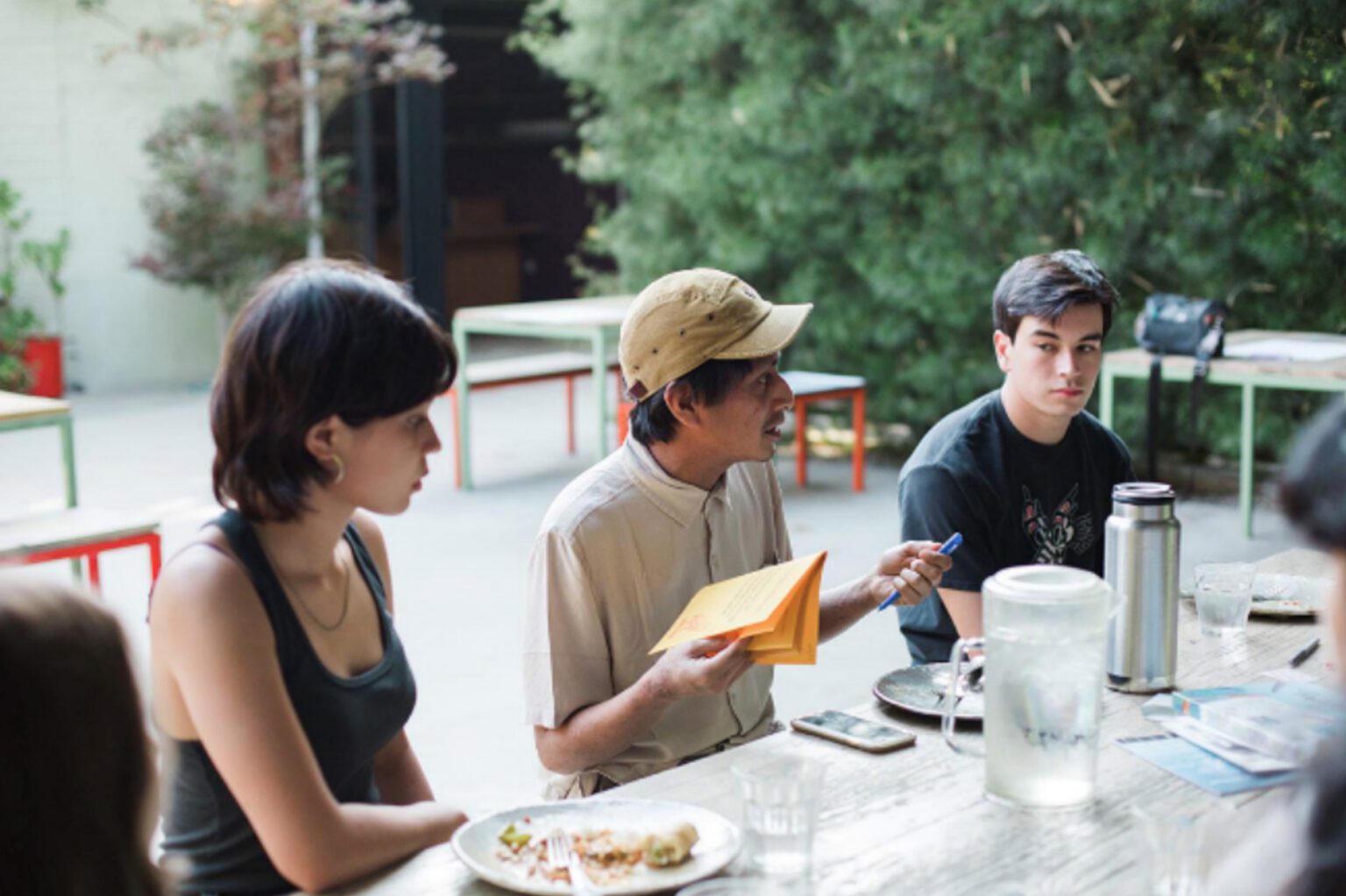 Key benefits of urban parks:
Key benefits of urban parks:
 California’s first urban state park, Candlestick Point State Recreation Area, is a shoreline park that provides access to open space and recreation in one of San Francisco’s most underinvested neighborhoods. The park itself was a community-led environmental justice initiative to “return the shoreline to a more natural and beautiful condition.”
California’s first urban state park, Candlestick Point State Recreation Area, is a shoreline park that provides access to open space and recreation in one of San Francisco’s most underinvested neighborhoods. The park itself was a community-led environmental justice initiative to “return the shoreline to a more natural and beautiful condition.”
To ensure local communities feel welcome, Parks California, California State Parks, and a core group of local nonprofits are working to rebuild community trust and reinvigorate the park through partnerships. The joint effort, known as Candlestick Point Partners, is a collaborative network of organizations dedicated to elevating Candlestick Point State Recreation Area into a welcoming and thriving community hub. By leveraging each other’s capacity and resources, the collective resources will strengthen Candlestick Point State Recreation Area and provide a richer park experience for visitors.
 Do you love spending time outdoors? Are you great at making connections? If so, we are looking for you! Candlestick Point SRA is looking for residents from Bayview Hunters Point, to launch a Park Advisory Committee. We are seeking individuals that are passionate about uplifting the community and reaping the benefits of their local State Park. Working alongside Parks California and park staff, the Committee will represent local voices and interests.
Do you love spending time outdoors? Are you great at making connections? If so, we are looking for you! Candlestick Point SRA is looking for residents from Bayview Hunters Point, to launch a Park Advisory Committee. We are seeking individuals that are passionate about uplifting the community and reaping the benefits of their local State Park. Working alongside Parks California and park staff, the Committee will represent local voices and interests.
The Committee members will have the opportunity to provide valuable input in the planning, creation, and development of park activities, strengthening the relationship between the park and community residents. Interested? Want to nominate someone? Learn more and apply HERE.
The Candlestick Park Activities Grants Program is an opportunity aiming to bring together community at Candlestick Point. A growing body of research suggests that nature provides a multitude of benefits from disease prevention, community resilience, social ties among neighbors, and amongst others. Through funding from Parks California, this grants program will support local organizations to host gatherings and activities for Bayview Hunters Point youth and adults at Candlestick Point State Recreation Area.
This funding opportunity is designed to help ensure Bayview Hunters Point youth and adults have a natural and public space to gather in community and have resources available to promote connection and healing. Grants will be awarded to nonprofits, schools, religious organizations that support youth, adults, and families in Bayview Hunters Point.
 The Bowtie Parcel is adjacent to the Rio de Los Angeles State Park along the LA River and is slated to become the next California State Park. To ensure the new park’s design serves nearby communities in the most equitable way, Parks California is proud to support a new community engagement and leadership approach – the Bowtie Youth Council, led by Clockshop. The council, which was made up of young adults, organized community engagement sessions over the course of several months to survey their communities’ vision for the park. From the community feedback, the council discussed ideas and assigned priorities in the park’s design and future programming. The youth council then advocated for their design in public meetings, with park professionals, and presented their priorities to California State Parks. The council’s findings have been embraced by California State Parks and will inform the future design of the park. The success of this project will serve as an example for effective community engagement.
The Bowtie Parcel is adjacent to the Rio de Los Angeles State Park along the LA River and is slated to become the next California State Park. To ensure the new park’s design serves nearby communities in the most equitable way, Parks California is proud to support a new community engagement and leadership approach – the Bowtie Youth Council, led by Clockshop. The council, which was made up of young adults, organized community engagement sessions over the course of several months to survey their communities’ vision for the park. From the community feedback, the council discussed ideas and assigned priorities in the park’s design and future programming. The youth council then advocated for their design in public meetings, with park professionals, and presented their priorities to California State Parks. The council’s findings have been embraced by California State Parks and will inform the future design of the park. The success of this project will serve as an example for effective community engagement.